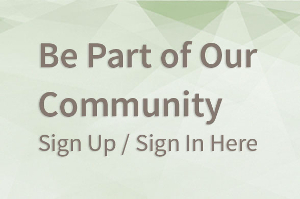BK Blog Post
Someone Else’s Opinion of Your Book Is Always Better than Yours
 Posted by
Anna Leinberger,
Editorial Manager, Acqusitions,
Berrett-Koehler Publishers Inc.
Posted by
Anna Leinberger,
Editorial Manager, Acqusitions,
Berrett-Koehler Publishers Inc.
Anna is a writer and editor for Berrett-Koehler in Oakland, CA. More on killer book proposals and writing can be found on her BK Blog.
Writing is terrifying. Anyone who has taken up a pen or placed fingers on a keyboard knows this. And when I say writing is terrifying, I really do mean that writing itself is terrifying. In my writer’s group, we do not mandate that writing be shareed. There is zero pressure- there is fear even before sharing it. Just turning the blurred images in my head or my vague notions into written words is scary. As I know from sitting at the other end of the process, that next step of putting your work in front of someone else’s eyes increases the terror by a factor of ten.
Drafts I receive from authors come in with nervous caveats and qualifiers, trepidation and apologies. It is not that my authors are a particularly insecure bunch- quite the opposite. Many of them speak publically for a living. They own businesses and are no stranger to building powerful personal networks, be they introvert or extrovert. But there is something acutely vulnerable about giving your writing to someone else to read, to judge, to critique. Here is the rub: it is the most important part of the writing process.
Your Writing Isn’t for You
Your writing is not for you… at least it isn’t if you want to be published. If you want you book to be published, you necessarily want others to read it. This means that hundreds, and hopefully thousands, of people will be reading, judging, and critiquing your words. One of the most important things you can do before publishing a piece of writing is have at least one person, preferably multiple, edit your work (bonus points if they are a paid professional). You want to have someone judge your work before 5,000 someones judge it.
I Can’t Edit My Own Writing
That’s right- I am a professional editor and I can’t edit my own work. I tell authors “you have buried the lead! Chapter three should be chapter one!” all the time. Guess what I do when I write? I bury the lead. My editors give me the same feedback I give my writers. The key here is that your perspective on your own work is always limited to exactly that- your perspective. You cannot see what you cannot see. Even if you have someone who has never edited anything look over your work, they will still see something that you did not, simply by virtue of being a different set of eyes, a different lifetime of experiences interpreting your words. At any given moment, I can be a writer or an editor, but I can never be both simultaneously. Writer and Editor are mutually exclusive roles.
Ultimately, You Are the Worst Judge of Your Own Work
You can never be objective regarding your own work- it is impossible. There does come a point where an artist needs to trust him or herself, where you have a gut feeling and need to go with it against all dissent. However, that moment should not come until you have struggled with feedback, gotten a lot of it, and put your own work through its paces. You need to at least consider the feedback and the reactions of others to your work before you settle on a direction. Value the other eyes that see your work, and remember that anyone who is giving you feedback is adding layers of important perspective and nuance to the finished product.





